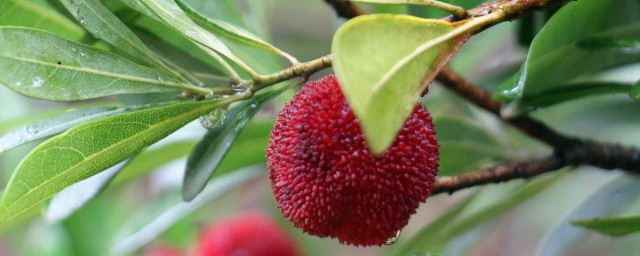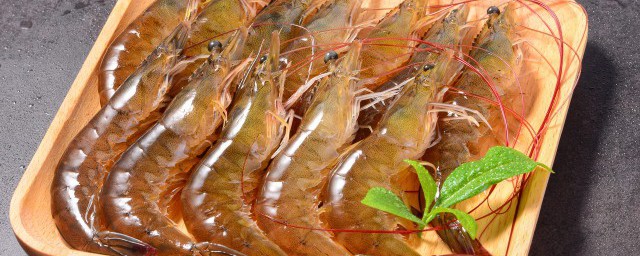西安各大名胜古迹的英文简介
1、大雁塔
Dayan Pagoda is located in Dacheng Temple, Jinchangfang, Chang'an City,
Tang Dynasty (now south of Xi'an City, Shaanxi Province), also known as "Tiantan Pagoda".
In the three years of Tang Yonghui (652), Xuanzang presided over the construction of the goose
pagoda of Tibetan Buddhi *** , which Tianzhu brought back to Chang'an via the Silk Road.
The first five layers are added to the ninth layer, and the number and height of the seventh layer are changed many times.
Finally, they were fixed on the seven-storey tower seen today, 64.517 meters high and 25.5 meters long at the bottom.
译文:
大雁塔位于唐长安城晋昌坊(今陕西省西安市南)的大慈恩寺内,又名“慈恩寺塔”。
唐永徽三年(652年),玄奘为保存由天竺经丝绸之路带回长安的经卷佛像主持修建了大雁塔,最初五层,后加盖至九层,再后层数和高度又有数次变更,最后固定为今天所看到的七层塔身,通高64.517米,底层边长25.5米。
2、钟鼓楼
Xi'an Bell and Drum Tower is the combination of Xi'an Bell and Drum Tower and Xi'an Drum Tower.
Located in the center of Xi'an, capital of Shaanxi Province, it is a landmark building of Xi'an.
These two Ming Dynasty buildings echo each other with great momentum.
The Bell Tower is an attic building with three eaves, four corners and a cusp.
It covers an area of 1377.64 square meters and is built on the square foundation made of green bricks and white ash.
The cross-shaped cave 6 meters high and wide under the platform is connected with four streets in the southeast, northwest and northeast.
译文:
西安钟鼓楼是西安钟楼和西安鼓楼的合称,位于陕西省省会西安市市中心,是西安的标志性建筑物,两座明代建筑遥相呼应,蔚为壮观。
钟楼是一座重檐三滴水式四角攒尖顶的阁楼式建筑,面积1377.64平方米,建在用青砖、白灰砌成的方形基座上。基座下有高与宽均为6米的十字形券洞与东南西北四条大街相通。
用英语说西安著名景点,
兵马俑:The Terra Cotta Warriors华清池Huaqing pool西安城墙Xi'an city Wall半坡遗址 Half way up the mountain site 阿房宫遗址 Palace site of room of A骊山Li mountain 小雁塔Small Wild Goose Pagoda 华山:Mount Hua 兴庆公园Xingqing Park
钟楼 bell tower 鼓楼 drum-tower慈恩寺benevolence
西安旅游景点英文介绍
Big Wild Goose Pagoda
Originally built in 652 ring the reign of Emperor Gaozong of the Tang Dynasty (618-907), it functioned to collect Buddhist materials that were taken from India by the hierarch Xuanzang.
Xuanzang started off from Chang'an (the ancient Xian), along the Silk Road and through deserts, finally arriving in India, the cradle of Buddhi *** . Enring 17 years and traversing 100 countries, he obtained Buddha figures, 657 kinds of sutras, and several Buddha relics. Having gotten the permission of Emperor Gaozong (628-683), Xuanzang, as the first abbot of Da Ci'en Temple, supervised the building of a pagoda inside it. With the support of royalty, he asked 50 hierarchs into the temple to translate Sanskrit in sutras into Chinese, totaling 1,335 volumes, which heralded a new era in the history of translation. Based on the journey to India, he also wrote a book entitled 'Pilgrimage to the West' in the Tang Dynasty, to which scholars attached great importance.
First built to a height of 60 meters (197 feet) with five stories, it is now 64.5 meters (211.6 feet) high with an additional two stories. It was said that after that addition came the saying-'Saving a life exceeds building a seven-storied pagoda'. Externally it looks like a square cone, simple but grand and it is a masterpiece of Buddhist construction. Built of brick, its structure is very firm. Inside the pagoda, stairs twist up so that visitors can climb and overlook the panorama of Xian City from the arch-shaped doors on four sides of each storey. On the walls are engraved fine statues of Buddha by the renowned artist Yan Liben of the Tang Dynasty. Steles by noted calligraphers also grace the pagoda.
As for the reason why it is called Big Wild Goose Pagoda, there is a legend. According to ancient stories of Buddhists, there were two branches, for one of which eating meat was not a taboo. One day, they couldn't find meat to buy. Upon seeing a group of big wild geese flying by, a monk said to himself: 'Today we have no meat. I hope the merciful Bodhisattva will give us some.' At that very moment, the leading wild goose broke its wings and fell to the ground. All the monks were startled and believed that Bodhisattva showed his spirit to order them to be more pious. They established a pagoda where the wild goose fell and stopped eating meat. Hence it got the name 'Big Wild Goose Pagoda'.
The Terracotta Army (Chinese: 兵马俑; Pinyin: Bīng Mǎ Yǒng; literally "military servants") or Terra-cotta Warriors and Horses is a collection of 8,099 life-size terra cotta figures of warriors and horses located in the Mausoleum of the First Qin Emperor (秦始皇陵; Qín Shǐ Huáng Líng). The figures were discovered in 1974 near Xi'an, Shaanxi province,
The terracotta figures were buried with the first Emperor of Qin (Qin Shi Huang) in 210-209 BC. Consequently, they are also sometimes referred to as "Qin's Army."
The Terracotta Army of China was discovered in March 1974 by local farmers drilling a well to the east of Mount Li. Mount Li is the name of the man-made necropolis and tomb of the First Emperor of Qin; Qin Shi Huang. Construction of this mausoleum began in 246 B.C. and is believed to have taken 700,000 workers and craft *** en 36 years to complete. Qin Shi Huang was interred inside the tomb complex upon his death in 210 B.C. According to the Grand Historian Sima Qian, The First Emperor was buried alongside great amounts of treasure and objects of craft *** anship, as well as a scale replica of the universe complete with gemmed ceilings representing the co *** os, and flowing mercury. representing the great earthly bodies of water. Recent scientific work at the site has shown high levels of mercury in the soil of Mount Li, tentatively indicating an accurate description of the site’s contents by Sima Qian.
The tomb of Qin Shi Huang is near an earthen pyramid 76 meters tall and nearly 350 meters square. The tomb presently remains unopened. There are plans to seal-off the area around the tomb with a special tent-type structure to prevent corrosion from exposure to outside air. However, there is at present only one company in the world that makes these tents, and their largest model will not cover the site as needed.
Qin Shi Huang’s necropolis complex was constructed to serve as an imperial compound or palace. It is comprised of several offices, halls and other structures and is surrounded by a wall with gateway entrances. The remains of the craft *** en working in the tomb may also be found within its confines, as it is believed they were sealed inside alive to keep them from divulging any secrets about its riches or entrance. It was only fitting, therefore, to have this compound protected by the massive terra cotta army interred nearby.
请帮我用一篇简短的英文介绍一下西安的旅游景点,不需要太复杂
The city of Xi'an was the first Chinese city to open up its doors to the Ancient world, not in 1980 under the "Open Door" policy but in fact ring the Tang dynasty when Xian blossomed as the first stop on the Silk Road.
Many dynasties kept the city beautiful and magnificent. More than two hundred and seventy palaces and temples, for example, were built in the Qin dynasty, in the Han dynasty the "Three Han Palaces", namely Changle, Weiyang, Jianzhang Palaces, and numerous other palaces and watch towers were built. In the City of Chang'an of the Sui and Tang dynasties, luxurious palaces sprang up like tree, of which Taiji, Daming and Xingqing Palaces and the forbidden garden of the Tang dynasty to the north of the town were very large. Now, from these architectural sites people still can imagine the general picture of what Chang'an City was like, then. All the emperors of the Qin, Han, Tang and other dynasties had their magnificent mausoleums built. Qin Shi Huang's mausoleum at the foot of Lishan Hill in Lintong county, for example, is the earliest example of a grand mausoleum for an emperor in ancient China. The twelve emperors of the Western Han dynasty were mostly buried on the plateau to the north of the Weihe River. Their tomb-mounds were man-made and quite imposing, but emperors of the Tang dynasty began to have their bombs constructed into hills. They are scattered in the counties to the north of the Weihe River and called the "Eighteen Tang Mausoleums". In front of these mausoleums were erected huge stone carvings, while inside them were exquisite funeral objects and colorful murals, a feast for one's eyes. Some of the monasteries and Buddhist pagodas constructed in many dynasties have remained well preserved, including the most famous ones, as the Big Wild Goose (Da Yan) Pagoda in Ci'en Temple and the Small Wild Goose (Xiao Yan) Pagoda in Jianfu Temple. The bronze wares of ancient China are an important example of the splendid culture that reflect this slave society. Feng and Hao in the Xi'an area, which were the capitals of the Western Zhou dynasty, have been acclaimed as "the Home of the Bronze wares", as a wealth of bronze items unearthed from there, over the years. It was quite popular to put up stone tablets in front of tombs to record the merits and achievements of the departed, in many dynasties, and a great deal of stone tablets and calligraphy data remain to this day. So Xi'an is also famous for being "the Home of Calligraphy".
The most famous site is the Terracotta Army, built to protect the Emperor Qin Shi Huang, whose Mausoleum lies close the warriors. Both these sights are to the east of Xian.
用英语介绍西安景点带翻译
陕西是华夏文明最重要、最集中的发源地之一,早在100万年前就有蓝田人在此生息劳作,从公元前11世纪起,历史上先后有13个朝代在此建都。
陕西省是我国文物古迹荟萃之地,有“天然历史博物馆”之称:古长安城的遗迹、号称世界第八大奇迹的秦始皇兵马俑、壮观雄伟的大小72座帝陵……博大悠远的华夏文明使每一个初到陕西的人都不自觉地挖掘内心深处的怀古悠思。
陕西不仅文物古迹众多,而且自然风光绮丽:有灵秀险峻的西岳华山和临潼骊山;有激流澎湃的黄河壶口瀑布;还有以保护大熊猫等珍稀动物为主的生态旅游区。
陕北高原不仅是中国革命的根据地,更是陕西民俗风情的发源地:高亢的秦腔、激昂的锣鼓、精湛的剪纸和极富生活气息的农民画等,无不以其厚重的文化底韵和独特的黄土风情吸引了越来越多关注的目光。
大雁塔全称“慈恩寺大雁塔”,位于距西安市区4公里的慈恩寺内,始建于公元652年,相传是慈恩寺的之一任主持方丈玄奘法师(唐三藏)自天竺国归来后,为了供奉和储藏梵文经典和佛像舍利等物亲自设计并督造建成。
华清池位于西安市临潼区骊山北侧,东距西安30公里。华清池因为有唐玄宗和杨贵妃的传说而名声远播,其实华清池的历史非常悠久,相传早在西周时期,周幽王就曾在此建骊宫;后世的秦始皇、汉武帝也都在这里建立行宫;唐代更是大兴土木,特别是唐玄宗天宝年间修建的宫殿楼阁更为豪华,并正式改名为“华清宫”。
兵马俑是始皇陵的从葬坑,位于秦始皇陵东侧约1公里半处,发现于1974年,是当代最重要的考古发现之一。一号坑是当地农民打井时发现的,后经钻探又先后发现二、三号坑,其中一号坑更大,面积达14260平方米。三个坑共发掘出700多件陶俑、100多乘战车、400多匹陶马、10万多件兵器。陶俑身高在1米75至1米85之间,根据装束、神态、发式的不同,可以分为将军俑,武士俑,车士俑等。坑内还出土有剑、矛、戟、弯刀等青铜兵器,虽然埋在土里两千多年,依然刀锋锐利,闪闪发光,可以视为世界冶金史上的奇迹。秦始皇兵马俑规模宏大,场面威武,具有很高的艺术价值。
钟楼位于西安城内东西南北四条大街的交汇处。始建于明洪武十七年,原址在今西安市广济街口,明万历十年移于现址,清乾隆五年曾经重修。钟楼上悬挂铜钟,用以报时,故名钟楼。鼓楼位于西安市西大街与北院门交汇处,东于钟楼隔广场相望,鼓楼建于明洪武十三年,清代曾两次重修。楼上原有巨鼓一面,傍晚击鼓报时,故名鼓楼。Shaanxi is one of civilized important , all together China headstream, as far back as having
Lantian Man to grow work here right away in the front for 1000000 years, starting from the 11th
century B.C., successively have 13 in history dynasty found a capital here. Shaanxi Province field
of being that our country cultural relics and historic sites gathers together , name of having "the
natural history museum ": Acient Chang An county City historical remains, are known as eighth
Shaanxi not only cultural relics and historic sites is a lot of , but also natural scene is
beautiful: Have precipitous West Hua Mountain and Lin Tong Mt. black horse intelligent and elegant;
Huanghe River kettle mouth waterfall having rapids to surge; Still have the organi *** 's habits
tourist area giving first place to protecting a giant panda waiting for a rare animal. Not only
northern Shaanxi highland be Chinese revolution base area , but also be Shaanxi folk custom local
manners and feelings headstream: Shaanxi opera loud and sonorous , vehement gong and drum ,
consummate paper-cut and extremely rich life breath peasant painting etc. , the sight having
attracted more and more many attention's all with it's culture thick and heavy bottom rhyme and
distinctive loess amorous feeling.
largest in the world miracle Qin Shi Huang's Buried Sculpture Legion , grand grand sight 72
emperors mausoleum big or *** all, ... Distant vast China civilization makes everyone first the
people who arrives at Shaanxi not excavate heart profundity meditating on the past conscientiously
swinging thought.
西安景点英文写法
钟楼The Bell Tower
鼓楼The Drum Tower
碑林The Stele Forest或者是 Xi'an Beilin Museum,
注:这两个翻译是标准翻译方式, *** 全书上就是这么写的,其它的翻译还有
The Stone Stele Museum等等,不过感觉都没有前两种的好~~
西安历史博物馆
Shaanxi History Museum
注:应该是叫做陕西历史博物馆哦

















